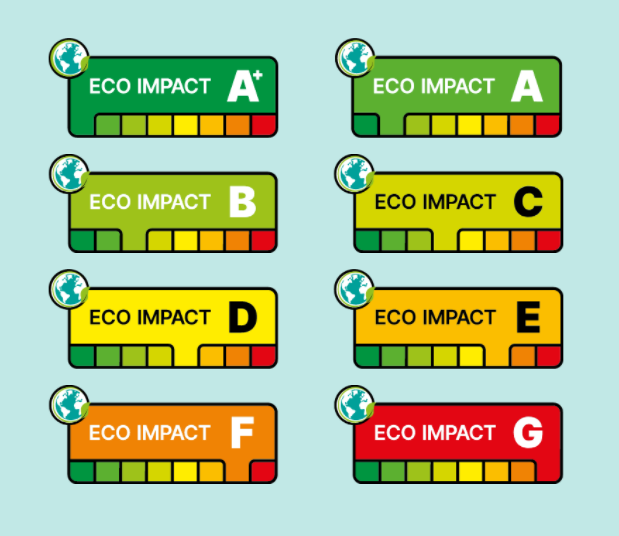Foundation Earth, an independent and non-profit organization, is seeking to raise awareness among consumers about the environmental impact of food products.
The organization is set to launch a traffic light-style system that will give food products an eco rating this autumn. A pilot launch for Foundation Earth is set to take place this autumn
According to Foundation Earth's official website, this eco rating will come in the form of front-of-pack labels that will indicate a particular product's environmental score.
Food Earth's initiative comes at a time where global food production is seen as one of the key drivers in greenhouse emissions, along with rice cultivation and animal farming.
Here is what you need to know about Foundation Earth and how it plans to assess and score the environmental impact of food products:
Foundation Earth: Organization Background
Foundation Earth is an independent, non-profit organization founded by Denis Lynn, a food entrepreneur who tragically passed away in May. Foundation Earth is described by the organization as Lynn's "idea and creation."
The organization has what it calls a Scientific Advisory Committee headed by its chairman, Professor Chris Elliott, OBE. The committee is tasked with assisting in the development of the labelling system that will be used as well as ensuring scientific rigour when it comes to the systems used for Foundation Earth.
Foundation Earth also has an Industry Advisory Group, which is made up of those who "support Foundation Earth's ambition to help build a more sustainable food industry," according to the company website.
Members of the Industry Advisory Group include representatives from companies such as Nestlé, EIT Food, Sainsbury's, Co-op, and Marks & Spencer.
Related Article: Reduce Your Food Waste To Ease Global Warming
How Food Products Will Be Assessed

Foundation Earth will be using a full product Life Cycle Analysis to assess the environmental impact of individual food products from its initial stages at a farm all the way to the delivery at supermarkets.
According to Positive News, each food product will be scored based on "the individual merit of a product, rather than a generic rating for a food type."
The method to be used is developed by Oxford University and environmental insights platform Mondra. It will assess each product's farming, processing, packaging, and transport practices and their impact on the environment.
The assessment will be guided by four key criteria: carbon, water usage, water pollution, and biodiversity. Per the Foundation Earth website, "the impacts are weighted 49% to carbon and 17% each for water usage, water pollution and biodiversity loss."
The Life Cycle Assessment will "put numbers to the impacts and finally award the score you see on our front-of-pack labels," the organization adds.
The ratings will range from A+ to G. Front-of-pack labels will come red, amber, and green, depending on the rating.
Foundation Earth Pilot Run
According to the previously mentioned report from Positive News, the scoring system developed by Foundation Earth will have a pilot run in the U.K. this September. A full roll-out across Europe is planned for 2022.
For the U.K. pilot, brands such as Marks & Spencer and Costa Coffee will be taking part. The pilot run aims to see if the front-of-the-pack labels on supermarket food products will change consumers' buying habits.
A study conducted in 2017 showed that parents opt for processed food not just out of convenience, but because they actually like ready-made meals despite the fact that they are loaded with calories, sodium, and sugar.
Also Read: Higher Prices Affect How You Judge Quality Food
This article is owned by Tech Times
Written by Isabella James
![Apple Watch Series 10 [GPS 42mm]](https://d.techtimes.com/en/full/453899/apple-watch-series-10-gps-42mm.jpg?w=184&h=103&f=9fb3c2ea2db928c663d1d2eadbcb3e52)



